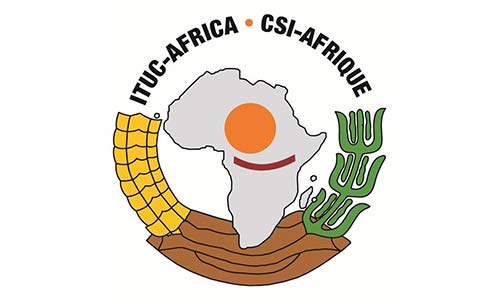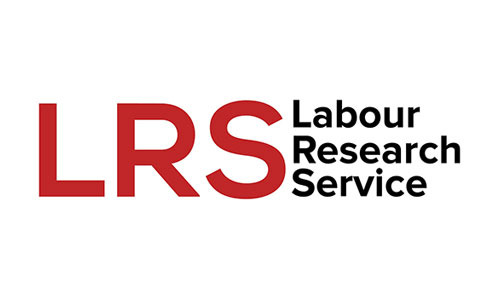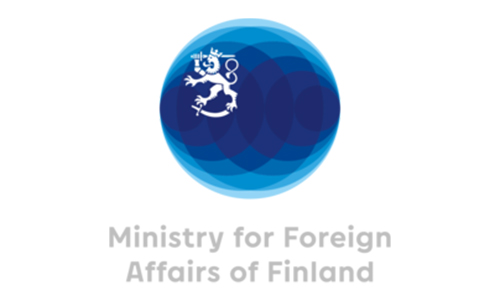The African Regional Organisation of the International Trade Union Confederation (ITUC-Africa) supported by the Labour Research Service (LRS) along with other labour support organisations and NGOs, is mobilising research and learning processes for the trade union movement in Africa to engage with the African Continental Free Trade Area (AfCFTA) agreement.
We are grappling with the question of the impact of the AfCFTA on key developmental metrics for African nations and the implications for the trade union movement will be. We are interested in strategies that the trade union movement in Africa can adopt to promote developmental outcomes of the AfCFTA.
Any project that begins when a global pandemic lands will face challenges. We have shown the trade union movement can move even under these conditions.
We have developed a guide to the AfCFTA tailored for trade unions that flags key issues to be debated and acted on.
The country perspectives on the AfCFTA are the building blocks of this free trade agreement. Our work has seen the production of a series of country reports coming out of Chad, Ghana, Namibia, Rwanda, Tunisia and also an exploration of the relationship between trade and the informal economy that models outcomes for the Zambian manufacturing sector.
Here are key messages emerging from some of our work so far:
Ghana
Ghana has a strong industrial development agenda with a stated focus on manufacturing.
Africa’s share of global trade declined from 6% to 3% in recent years and intra-African trade is small relative to other regions of the world. Government support for private sector manufacturers will be key, for example, addressing electricity, credit and infrastructure bottlenecks.
The possibility of the creation of low skill jobs and higher levels of exploitation highlights the importance of labour rights as a dimension of the AfCFTA. Functioning industrial relations systems and trade unions can limit exploitation and this also requires support by governments.
Namibia
- The work highlights the importance of trade blocs, such as the Southern African Customs Union (SACU) when thinking about and engaging with the AfCFTA. It follows that regional solidarity and engagement are key to balanced implementation and outcomes of the AfCFTA.
- We must keep assessing the different dimensions of AfCFTA, including gender and the environment, which are currently not being foregrounded in negotiations.
- Trade and labour are inseparable.
- There should be a social charter attached to the AfCFTA.
The informal economy and trade (the case of Zambia)
- The research suggests that trade reform (such as reducing tariffs) can reduce informal work and support formalisation.
- The work acknowledges the importance of the informal economy, which cannot and should not be discounted in the African context and puts forward structural recommendations for making the informal economy more competitive.
Tunisia
The work stresses that the African trade union movement is a potential guarantor of a balanced implementation of the agreement and advocates for embedding South-South solidarity levers as an important measure in this regard.
Chad
An update from the AfCFTA Secretariat
- Phase two negotiations of the AfCFTA have yet to begin.
- 54 countries are signatories to the AfCFTA, with the exception of Eritrea.
- 42 countries have ratified the AfCFTA and there are 39 state parties registered with the AfCFTA.
- 43 countries have submitted tariff offers.
- 29 of 43 countries are ready to start trading under the AfCFTA.
- The ministerial directive to allow members to implement the AfCFTA is pending finalization.
- There is progress on rules of origin and 87% of tariff lines agreed (excluding textiles which is a sticky area and there is still work to be done in the automotive sector). How rules of origin relate to Special Economic Zones (SEZ) is also yet to be resolved.
- 43 of 55 countries have submitted offers regarding trade and services.
- The modalities for negotiations on the protocol on investment are still being considered and a draft protocol on investment has yet to emerge.
Our work is firmly situated in a shared agenda for African development that delivers on labour rights, or rather, where labour rights, trade unions and industrial relations are understood as mechanisms for delivering a just trade transition into the AfCFTA. For example, rules of origin are key. Trade unions are mechanism for monitoring and compliance with key aspects of the AfCFTA such as this.
The possibilities of the AfCFTA are immense and will shape the landscape for decades to come, but developmental and just outcomes are not guaranteed – they must be forged in ongoing engagement. There is much more to come from the trade union movement in Africa on this trade agreement.

A delegation from ITUC-Africa visited the Secretariat of AfCFTA in Ghana in October 2021 and expressed the concerns of the labour movement about the AfCFTA agreement and processes.
For ITUC-Africa: Kwasi Adu-Amankwah (General Secretary); Kwabena Nyarko Otoo (Director of Labour Policy and Research Institute); Sylvester Bagooro (Programme Officer at Third World Network-Africa).
For AfCFTA Secretariat: Wamkele Mene (Secretary General); Peter Joy Serwornoo (Advisor to the Secretary General)
“Worker organisations must be involved in the processes related to the AfCFTA Protocols which are yet to be negotiated with a view to considering workers’ concerns.We still have a long way to go together in the AfCFTA processes for the genuine economic and social transformation of the African continent and its people, as we work together to implement and to give full expression to one of the key elements of ITUC-Africa strategic plan for the period 2020-23, that is, …to strengthen African trade union role in economic transformation.” ~ Kwasi Adu-Amankwah, General Secretary of ITUC-Africa
Trenton Elsely
Trenton Elsley is the Executive Director of the Labour Research Service. Trenton’s interests include democracy, civil society, the politics of trade union organisation and representation, the world of work and multinational companies.




